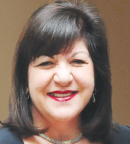
Margaret Foti, PhD, MD (hc)
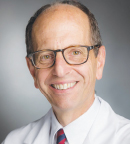
George D. Demetri, MD
Turning the Tide Against Cancer is an annual conference sponsored by the Personalized Medicine Coalition, American Association for Cancer Research (AACR), Feinstein Kean Healthcare, and CancerCare. Margaret Foti, PhD, MD (hc), AACR Chief Executive Officer, introduced the proceedings for the 2017 meeting.
“We in the oncology community are challenged by sustaining our remarkable progress against cancer while at the same time stepping up our efforts to reduce health-care spending. This task has never been more fraught with problems, and more than ever we need to develop value-based cancer care as we increase our understanding of the changing role of patients.”
High-Value, High-Impact Care
“Advances in fundamental science and clinical research are giving us new and highly effective tools to address the complexities of cancer. Coupled with rapid innovation in technology, we—that is, all stakeholders—have the opportunity to harness these convergences to substantially improve patient outcomes,” said George D. Demetri, MD, member of the AACR Board of Directors and Associate Director for Clinical Sciences, Dana-Farber/Harvard Cancer Center.
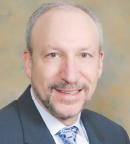
People don’t want to drive miles to a big hospital, and in many cases, … they can’t afford to do that. So we’re trying to give them what they want and need—at home.— Lee S. Schwartzberg, MD
Tweet this quote
In an increasingly divisive society, cancer can bring people together, especially with regard to communicating with patients, something at which we have not been particularly effective, he said. “But we’re getting better, and I am very optimistic about the future.”
Curiosity-driven research is the future of cancer, and it has to be funded. “Breakthrough” is exactly the right word to use when talking about the drivers that have redefined the constellation of diseases we call cancer, said Dr. Demetri. “For example, for years, we have been thinking about ways to use the immune system to treat cancer, and now we’re doing it. Yes, we’re still taking baby steps, but it’s real. Hundreds of lung cancer survivors can attest to that.”
There are also social and personal goods that derive from scientific research, he added. “This is why patients’ voices matter so much.”
Patients Speak Out
Patricia J. Goldsmith, CancerCare Chief Executive Officer, moderated a panel of five cancer survivors, all intelligent and articulate and all of whom had thought about what the cancer experience had meant to them—and what it had done to them.
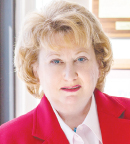
Patricia J. Goldsmith
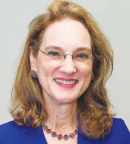
Wendy S. Harpham, MD
Ms. Goldsmith first asked them to describe what went well with their treatment and what did not. All agreed that the existence of good health insurance was a significant positive factor and removed most of the financial stress.
Wendy S. Harpham, MD, who had to give up the practice of medicine said, “My care was all good, except that the cancer kept coming back!” The longevity of her illness meant she came into contact with many different oncologists, who had a variety of practice styles. “It wasn’t until I had cancer that I saw things from the other side of the doctor-patient relationship. Only then did I realize it’s not so much the content of the information presented to patients, it’s how they—we—hear and process that information, how we make decisions.”
Stephanie Dunn Haney was diagnosed with stage IV lung cancer at age 39, when her children were aged 2 and 4. The thing that frightened her most was that she might die right away, and her children wouldn’t remember her.
The worst part about her treatment experience was her physicians’ communication skills. “They all seemed ready to give up on me, and I just didn’t want to die. I finally talked to a friend of a friend who’s a cancer researcher. He did not treat me, but he gave me some hope. He said, ‘Heart disease and diabetes are incurable, but they are manageable. So is some cancer.’ And here I am.”
Patient-Driven Value Measures
One of the panelists for a discussion of patient-driven value measures was Lee S. Schwartzberg, MD, Executive Director of West Cancer Center in Memphis, a growing community provider. “People want to stay home,” he said. “They don’t want to drive miles to a big hospital, and in many cases, especially in our service area, they can’t afford to do that. So we’re trying to give them what they want and need—at home.”
He said that a fairly high percentage of the under- or uninsured patients who live within a 100-mile radius have trouble getting to their appointments because they don’t have a car and there’s no public transit, or they don’t have anyone to watch their children, or they don’t have the money for gas or busfare or a babysitter.
The West Cancer Center is a full-service facility that has established a partnership with Methodist Healthcare and the University of Tennessee Health Science Center to combine clinical research in a patient-focused setting.
“We have been concentrating on patient-reported outcomes to see what happens to symptoms and to find ways to improve value-based systems of care. We also are paying attention to the psychosocial aspects of having cancer as well as patient satisfaction,” said Dr. Schwartzberg. “The attitudes of staff are critical here, and we want to know if patients received what they needed from a visit—every visit,” he added. ■
DISCLOSURE: Ms. Goldsmith and Drs. Foti, Demetri, Harpham, and Schwartzberg reported no conflicts of interest.
TURNING THE TIDE AGAINST CANCER PUBLICATIONS
- Clinical Pathways: Recommendations for Putting Patients at the Center of Value-Based Care
- Oncology Clinical Pathway Best Practices: Understanding the Current State of Pathway Development, Implementation and Evaluation
- Turning the Tide Against Cancer Principles: Advancing Patient-Centered Solutions for Sustaining Patient Access and Innovation in Cancer Care
- The Impact of Alternative Payment Models on Oncology Innovation and Patient Care
- To view these and other publications from the initiative and for more information, visit http://www.turning thetideagainstcancer.org/publications

